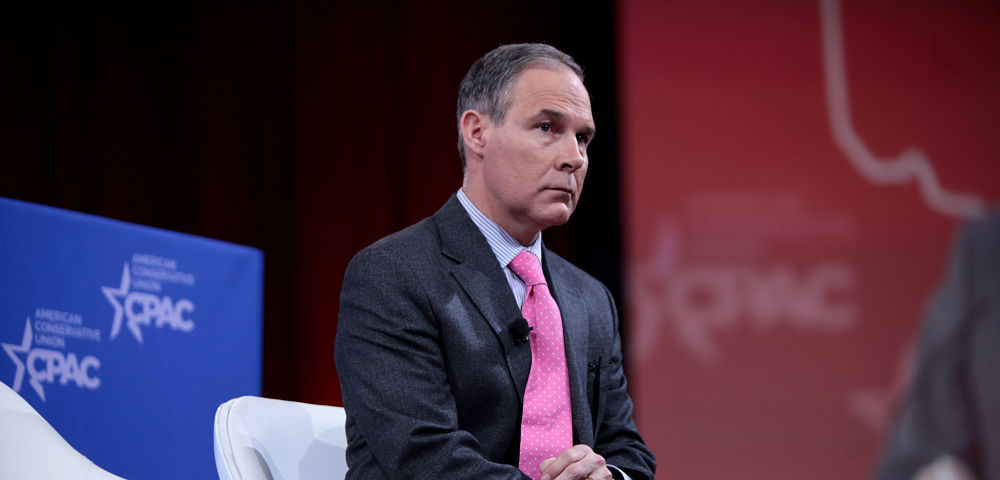Scott Pruitt Is out but His Impact on the Environment Will Be Felt for Years

Scott Pruitt, who has finally stepped down as administrator of the Environmental Protection Agency after a long-rumbling corruption scandal, rose to public prominence on the back of a series of increasingly outlandish ethical controversies.
From lobbying fast food company
But the lasting legacy of the former
While not as eye-catching as, for example, his demand that his official vehicle use sirens so he could reach a French restaurant on time, Pruitt’s actions at the
A staunch ally of oil and gas companies, Pruitt stacked
He oversaw the delay or destruction of dozens of clean air and water rules, sparking legal battles with states and environmental groups. The EPA’s record in court under Pruitt was patchy but his deregulatory zeal was enough to impress Trump, who said Pruitt was doing a “fantastic job” even as scandals that sparked more than a dozen different investigations swirled around him.
Pruitt became a trusted advisor to Trump, helping convince the president the US should withdraw from the
Under Pruitt, the
Pruitt proposed looser safety rules for chemical plants and halted a planned ban on chlorpyrifos, an insecticide linked to developmental problems in children, after being directly lobbied by
Enforcement of environmental crimes that foul the air and water also fell under Pruitt, with industries afforded an unusual level of deference. In his final days as
Proposed
These cuts didn’t find support in Congress, where even Pruitt’s staunchest supporters began to wobble as the scandals mounted. Most Republicans shared Pruitt’s view that the
Pruitt’s impact, however, has been significant. At a time when the US needs to accelerate its emissions cuts to stave off the worst floods, wildfires, repeated monster hurricanes and other calamities associated with climate change, the national response has been eviscerated, the international community left floundering and aghast.
The way the
Many of rule rollbacks instigated by Pruitt still need to be completed, which is why green groups are horrified that Pruitt’s replacement – at least in the interim – is his deputy Andrew Wheeler, a former coal lobbyist.
Wheeler is known as a technocrat who is well-versed in DC politics. He’s unlikely to have quite the same appetite for financial and scandal as his predecessor, meaning that Pruitt’s agenda will continue, just without any of the high-profile ethical abuses.
“Scott Pruitt will go down in history as a disgrace to the office of
“He will forever be associated with extraordinary ethical corruption,” he continued..
But Cook warned the Pruitt effect will last. “Sadly, the ideological fervor with which Pruitt pursued the destruction of environmental regulations and the agency itself live on in the Trump administration. So while Pruitt is gone, and good riddance, our resistance to all he stood for will continue undiminished.”



